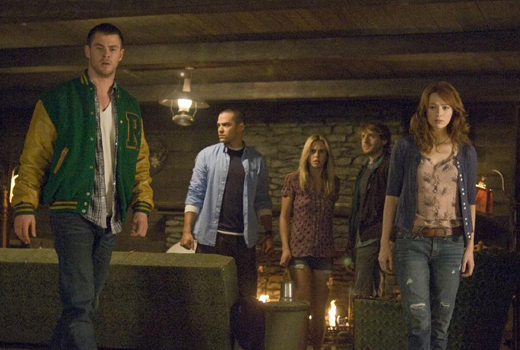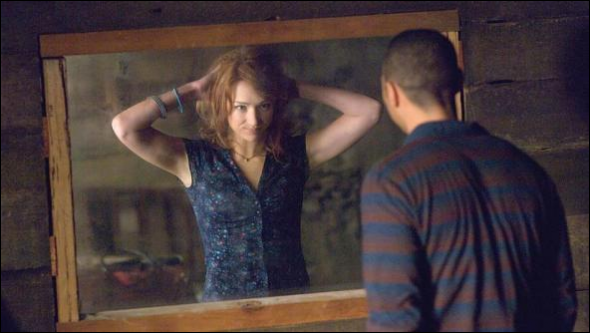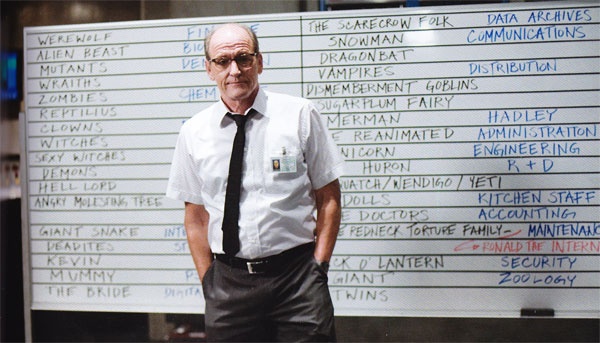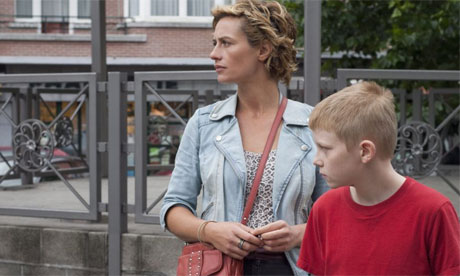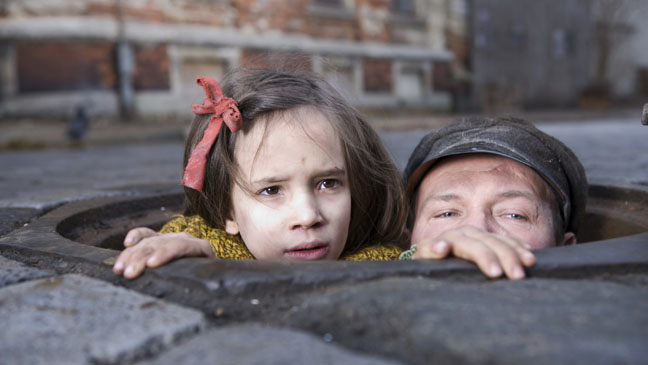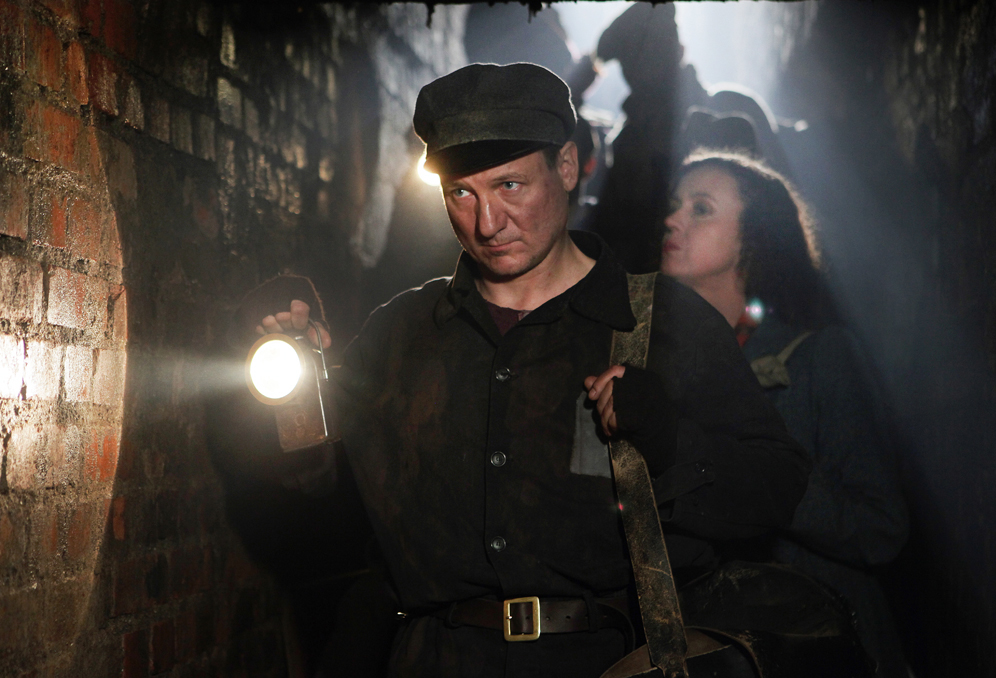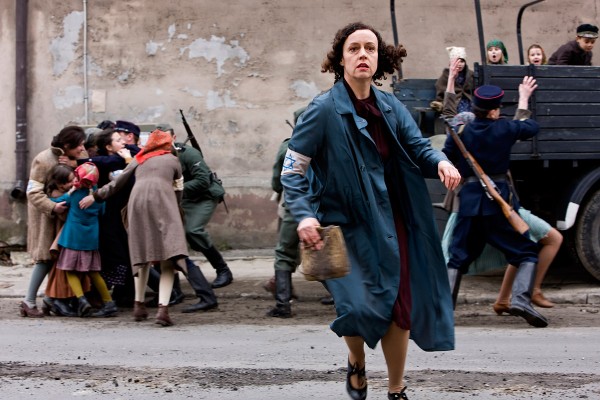Moonrise Kingdom
 I had a smile on my face pretty much continuously while watching Wes Anderson's new film, "Moonrise Kingdom." Every shot is visually witty. But then, Anderson is the very definition of an auteur: every frame of his films is an expression of his personality. With this movie he's fully his quirky self, giving people who like him a lot to like and people who don't a lot to be annoyed about. This is the best way to proceed, it seems to me.
I had a smile on my face pretty much continuously while watching Wes Anderson's new film, "Moonrise Kingdom." Every shot is visually witty. But then, Anderson is the very definition of an auteur: every frame of his films is an expression of his personality. With this movie he's fully his quirky self, giving people who like him a lot to like and people who don't a lot to be annoyed about. This is the best way to proceed, it seems to me.
Orson Welles famously described the set of "Citizen Kane" as "the greatest train set a boy could ever have," and I imagine Anderson gets the same kick on his set. Choreographed and art-directed down to the last detail, his imagery is immediately recognizable, like looking at life-size miniatures. (One sometimes gets the feeling that he conceives of his characters as dolls he can move around his mise-en-scene.) It can be surreal: I think of the tree house perched precariously in the sky at the top of a spindly tree trunk. The tone is dry and wry, whimsical and deadpan.
He proceeds by feeling more than by intellect, the way all artists must. He picks the music for his movies in a way that makes emotional sense (at least to me), even if it has no literal connection to the action. Here we get Benjamin Britten's "A Young Person's Guide To The Orchestra," cued to an extraordinary opening tracking shot, one of Anderson's trademark cross-section windows onto a world. There's also a lot of Hank Williams. (As usual with an Anderson picture, I walked out feeling like I must snatch up the soundtrack.)
The island of New Penzance in 1965, where "Moonrise Kingdom" is set, is a land out of a storybook. This is fitting, because Anderson, who co-wrote with Roman Coppola, has said that he conceived of the movie as something that his young heroine, 12-year-old bookworm Suzy (Kara Hayward), could put in her suitcase along with her other fantasy books. She's packed her bags to run away with fellow 12-year-old Sam (Jared Gilman). They are in love.
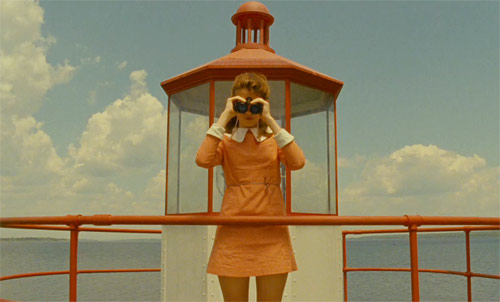
The kids look around and they know immediately what they don't want to be like: the sad adults in their lives, especially as Suzy views them, watching her mom's assignations through her binoculars with local cop Bruce Willis. Her parents, Bill Murray and Frances McDormand, are both attorneys; they refer to each other as "counselor." They do love each other, they do love the kids, and yet the family's come apart. No one is to blame, exactly, yet they have to face it: their best has not been enough.
Suzy sees a kindred spirit in the bespectacled, precocious Sam. A "Khaki scout," he is never without his Davy Crockett coonskin cap, and he is an expert on all things to do with surviving in the wilderness. He can row, fish, set up camp. He is also an orphan. She sees in him a fellow misunderstood "troubled child." (Suzy shows him a pamphlet she found on the top of her refrigerator: "Coping With The Very Troubled Child." This bit is personal: Anderson says he found the same pamphlet on top of the fridge when he was a kid.)
The Khaki Scout camp (Camp Ivanhoe) is conceived of in terms of Fort Apache: think of a cavalry scene from a John Wayne movie, but with children. Edward Norton is the scout master, intrepid and earnest, if hapless. Harvey Keitel appears late in the film as his hero, a grizzled Khaki scout General. Jason Schwartzman has an amusing turn as a slightly shady junior officer, who will marry the kids in exchange for a tennis ball can full of nickels. The great Tilda Swinton, one-time underground film muse, is also on hand as "Social Services." She reckons there's nothing wrong with Sam some shock therapy wouldn't fix.
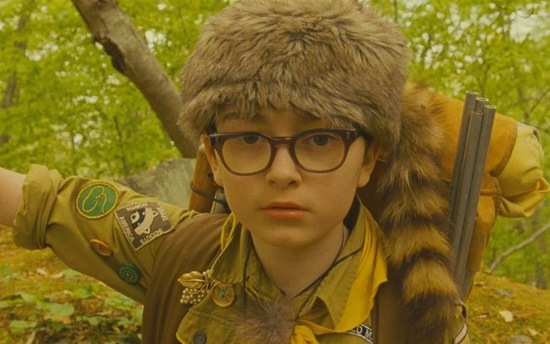 Spotting the influences on "Moonrise Kingdom" is fun. There's a bit of "Peter Pan": when Suzy reads Sam and the other runaway scouts a bedtime story, it's Wendy and the lost boys. When the kids huddle together it reminded me of my days playing an orphan in a community theater production of "Oliver" (another story about a little orphan boy). The kids speak in a drolly precocious way that sometimes reminded me of classic "Peanuts," Charlie Brown, Linus and the gang. And I saw a bit of Nicholas Roeg's "Walkabout" and even Antonioni's "Zabriskie Point" in the way Anderson shoots a girl and a boy at the edge of nowhere, living out a fantasy of an existence without adult authority. And this is just scratching the surface. There's Godard and Truffaut...
Spotting the influences on "Moonrise Kingdom" is fun. There's a bit of "Peter Pan": when Suzy reads Sam and the other runaway scouts a bedtime story, it's Wendy and the lost boys. When the kids huddle together it reminded me of my days playing an orphan in a community theater production of "Oliver" (another story about a little orphan boy). The kids speak in a drolly precocious way that sometimes reminded me of classic "Peanuts," Charlie Brown, Linus and the gang. And I saw a bit of Nicholas Roeg's "Walkabout" and even Antonioni's "Zabriskie Point" in the way Anderson shoots a girl and a boy at the edge of nowhere, living out a fantasy of an existence without adult authority. And this is just scratching the surface. There's Godard and Truffaut...
Children are the ideal protagonists for a filmmaker who never lost his sense of wonder. But while it's a film about children, it's not really for them: it's as an adult audience that we find Suzy and Sam funny, precisely because they've yet to develop the adult habit of dissembling. They're comically earnest in the way that only adolescents can be. Suzy has a strikingly direct, penetrating gaze.
As Suzy and Sam, Hayward and Gilman are direct and natural. Crucially, they are not embarrassed. They are given a first-kiss scene. After a dip, they dance in their underwear by the sea to a French pop 45 played on her battery-operated record player. Suzy in particular is right on the cusp of nascent sexuality, and if Anderson is not afraid to make us feel a bit of the anxiety her parents feel about that, Suzy herself feels none.
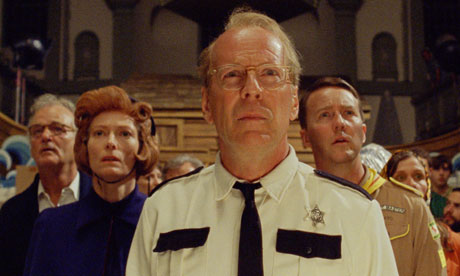
There's usually theater in Anderson's movies, and here it's a community production of "Noye's Fludde" (Noah's flood), staged at a church, with music by none other than...Benjamin Britten. (We've been told by Bob Balaban's narrator that a Biblical flood is coming.) But then, Anderson's movies retain the feel of a play put on for the grown-ups. It's fun to see him get movie stars to behave like a community troupe. Everybody in the film seems to have had a great time making the movie: you can feel it on the screen. Bill Murray, of course, is the perfect ingredient to spike Anderson's films: he keeps the whimsy from becoming arch or twee.
(P.S. If you stick around for the closing credits, you get to hear Alexandre Desplat's original score given a fascinating "Young Person's"-style breakdown, narrated by young Sam.)
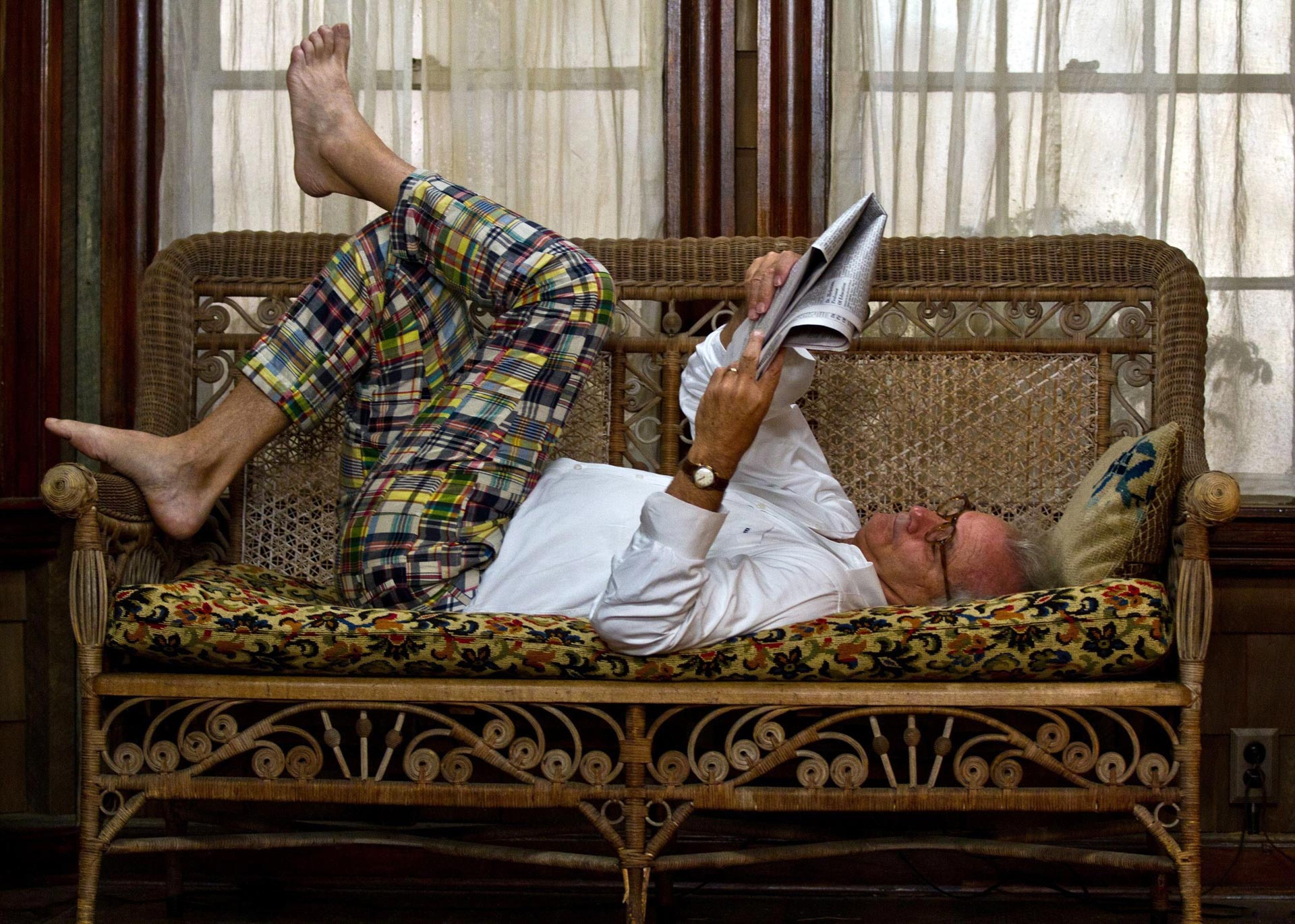
Rating: ****1/2
--June 7, 2012
Key to ratings:
***** (essential viewing)
**** (excellent)
*** (worth a look)
** (forgettable)
* (rubbish!!)


 Scott Pfeiffer
Scott Pfeiffer